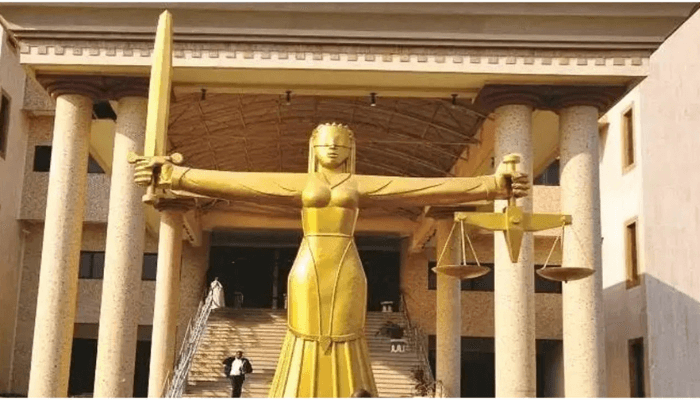In December 2024, I received a letter from the National Judicial Council, signed by the Chief Justice of Nigeria herself, assuring me that my petition against a Federal High Court judge was receiving due attention. This letter offered a glimmer of hope, but recent developments have dimmed that optimism. Another glaring instance of judicial corruption and manipulation—this time from the FCT High Court—has underscored the systemic decay within Nigeria’s judiciary.
The challenges plaguing the judiciary are profound and multifaceted. At the heart of the problem lies the pervasive influence of powerful politicians and influential members of the legal profession, whose vested interests perpetuate judicial rascality. These forces actively intervene to protect corrupt judges, shielding them from accountability. Such judges often serve as proxies for politicians, ensuring that judicial outcomes align with political interests rather than the principles of justice. Frequently, these judges are not acting alone; they are emboldened by powerful attorneys who exploit the system to benefit their clients.
This collusion between the judiciary, the bar, and the political elite is not just an inconvenience—it is a cancer eroding the core of our legal system. Justice has become a commodity for sale, with courts turned into marketplaces where technicalities are exploited, and truth is a casualty. The scales of justice are tipped, and the law, instead of protecting the weak, has become a weapon for the powerful.
The consequences of this judicial rot are dire. Public trust in the judiciary has eroded to alarming levels. For ordinary Nigerians—particularly the poor and vulnerable—the courts no longer symbolize fairness. They represent injustice, where money, power, and political alliances determine outcomes. This has fostered widespread cynicism, with many questioning the legitimacy of the judicial process.
The implications extend beyond Nigeria’s borders. When I discussed Nigerian court judgments with representatives of U.S. agencies, I was told that such judgments often come with significant suspicions, reflecting the global lack of confidence in our legal system. This skepticism undermines Nigeria’s reputation and hampers its economic and legal relationships internationally. Foreign investors, unwilling to risk their resources in a country where contracts and disputes cannot be trusted, shy away. This distrust stifles economic growth and job creation, further isolating Nigeria in an increasingly competitive global economy.
The pressing question is this: When politicians manipulate the law to serve their interests—even at the cost of justice—will they ever reform the very system that benefits them? History suggests they will not. Why would politicians, who thrive on judicial corruption, push for reforms that strip them of this advantage? As long as they remain beneficiaries, meaningful reform will remain a distant dream.
Even the agencies tasked with fighting corruption appear unwilling to act decisively. The Economic and Financial Crimes Commission, for instance, has been conspicuously silent on prosecuting corrupt judges. Pursuing these judges would mean targeting their political benefactors, an act tantamount to self-sabotage for the agency. This reluctance underscores the systemic nature of the problem.
The judiciary, once seen as the last bastion of hope for the oppressed, has been engulfed by corruption and inefficiency. Urgent reforms are needed, but these reforms cannot come from those who benefit from the status quo. Change must come from civil society, international partners, and the Nigerian people—a collective effort that transcends political and economic interests.
A Path to Reform
The first step toward reform is increasing judicial transparency. Installing CCTV cameras in courtrooms and live-streaming proceedings would ensure justice is not only done but seen to be done. Countries like Kenya and South Africa have shown that live-streaming major cases fosters accountability and builds public trust.
Secondly, judges must be adequately compensated. A well-paid judiciary is less susceptible to bribery and undue influence. By ensuring financial security for judges, we reduce their vulnerability to corruption. Proper compensation is not merely an expenditure—it is an investment in the nation’s future, fostering fairness and impartiality in the judicial process.
Additionally, a zero-tolerance policy for corruption must be implemented. Judges and lawyers who manipulate the system should face severe consequences. Regulatory bodies must be empowered to act decisively against unethical practices, regardless of the individual’s status or influence.
Ultimately, reform must dismantle the patronage system that allows politicians to control the judiciary for personal gain. Until the judiciary is freed from political and financial interests, true reform will remain unattainable.
Restoring Hope
The Nigerian people deserve better. The time to act is now. If corruption and manipulation continue to define our judiciary, we risk raising a generation that no longer believes in the rule of law or justice. The judiciary must reclaim its role as the guardian of fairness and equity. Only then can we begin to heal the deep wounds inflicted by years of malfeasance.
Without urgent action, the judiciary risks becoming irredeemable. However, with the collective will of the Nigerian people, supported by genuine reform, it is still possible to restore integrity, rebuild trust, and create a judiciary that serves justice for all.
